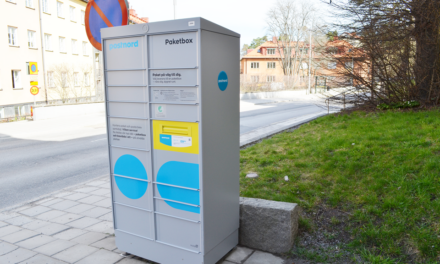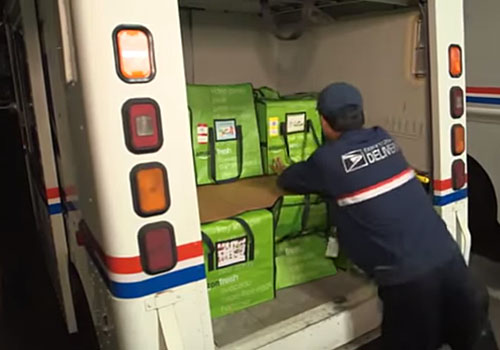
Leader seeks better postal pay, benefits, budgets
Barely one month on the job, the new president of the National League of Postmasters is gearing up for consultations with U.S. Postal Service headquarters about pay, benefits and budgeting.
This year for the first time, the league will enter those consultations jointly with the National Association of Postal Supervisors and the National Association of Postmasters of the United States, said the new league president, Charles Mapa. The consultations — not the same as union “negotiations,” since postmasters are part of management — are mandated to begin within 30 days of completion of talks with the largest union, which are set to end no later than November.
“I think it is better that all three enter this together because we all have the same concerns and the same pay considerations,” Mapa said.
At the top of the list for the league will be pay. But another big issue will likely be health care benefits, whose costs postal headquarters has said it hopes to contain this year. The league is hoping to protect what it has.
Third, Mapa said he hopes a change can be made in the way postal headquarters budgets for individual post offices. All too often, Mapa said, post office budgets are reduced from the preceding year with seemingly little attention to those post offices’ needs.
“Some of those budgets aren’t reality based,” Mapa said. “Budgets, which are used to run the entire office, including pay, sometimes don’t take account of such variable needs as repairs, new vehicles or the added expense of long-term illnesses. We would like to see budgets based pretty much on what happened the year before.”
Mapa, who has a bachelor’s degree in biology from Humboldt State University in Arcata, Calif., was elected national president at the league’s national convention in August in Nashville, Tenn.
Mapa has been a league member for 21 years, serving as California branch vice president, executive vice president and president. In 1998, he was named California’s Postmaster of the Year. He was elected league vice president in 2001 and executive vice president in 2004.
Before moving to Alexandria, Va., where league headquarters are situated, Mapa and his wife, Gwenda, lived in Gold Run, Calif., where was appointed postmaster in 1985. He had joined the Postal Service as a part-time distribution clerk in 1980 at the Eureka, Calif., mail center, then became a distribution and window clerk at the Colfax, Calif., post office in 1982. By 1985 he was serving as officer-in-charge, the highest-ranking position in the absence of a postmaster, at the Dutch Flat, Calif., Post Office and later that year as officer-in-charge, then postmaster, at Gold Run.
Mapa and two relief workers serve about 450 customers in the old mining town in the Sierra Nevada Mountains. He relishes his role: “What I really liked about the job was that I was responsible for everything that happened,” he said. “If it went wrong, I got the blame. If it went right, I got the credit. I was my own boss.”
Mapa, whose term as league president lasts two years, said his vision includes making the organization stronger by increasing its membership.
“We want to get out the message that if you have a problem, you can turn to the league. One of my tasks will be to make sure that everyone gets an invitation to join and let them know that we are here to represent them and that we have programs to help them out with their careers,” Mapa said.
The league has about 8,000 active postmasters and a total membership, including retirees, of about 17,000.
Mapa said he is also pushing for postal reform legislation, although it is not completely to his liking. Mapa favors the bill because it will relieve the agency of its obligation to pay for the military pensions of its workers and the obligation to set aside more than $3 billion annually into an escrow fund. Without those changes, years in which the Postal Service realizes a net profit could easily be turned into years of net losses, he said.
In addition, Mapa hopes to help persuade Congress to terminate the so-called windfall elimination provision, which can reduce some federal retirees’ Social Security payments.
“A great number of postmasters have worked their 40 quarters [under Social Security] before joining the Postal Service, and many will work in the private sector when they retire from here,” Mapa said. “It’s a fairness issue. If you work for a benefit, you should get it.”
Finally, Mapa said he wants to continue the league’s practice of providing training for its members.
“We’re very big here on training,” he said. “After we got computers in the post offices we pushed to get adequate training for that. Now with the introduction of some real neat technology like bar codes that almost track mail, we will need additional training.”
E-mail: [email protected]












